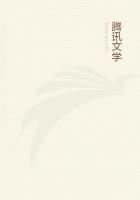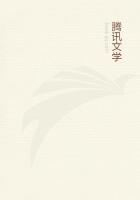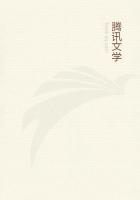For we could only, at best, arrive at a complete cognition of our own mode of intuition, that is of our sensibility, and this always under the conditions originally attaching to the subject, namely, the conditions of space and time; while the question: "What are objects considered as things in themselves?" remains unanswerable even after the most thorough examination of the phenomenal world.
To say, then, that all our sensibility is nothing but the confused representation of things containing exclusively that which belongs to them as things in themselves, and this under an accumulation of characteristic marks and partial representations which we cannot distinguish in consciousness, is a falsification of the conception of sensibility and phenomenization, which renders our whole doctrine thereof empty and useless.The difference between a confused and a clear representation is merely logical and has nothing to do with content.No doubt the conception of right, as employed by a sound understanding, contains all that the most subtle investigation could unfold from it, although, in the ordinary practical use of the word, we are not conscious of the manifold representations comprised in the conception.But we cannot for this reason assert that the ordinary conception is a sensuous one, containing a mere phenomenon, for right cannot appear as a phenomenon; but the conception of it lies in the understanding, and represents a property (the moral property)of actions, which belongs to them in themselves.On the other hand, the representation in intuition of a body contains nothing which could belong to an object considered as a thing in itself, but merely the phenomenon or appearance of something, and the mode in which we are affected by that appearance; and this receptivity of our faculty of cognition is called sensibility, and remains toto caelo different from the cognition of an object in itself, even though we should examine the content of the phenomenon to the very bottom.
It must be admitted that the Leibnitz-Wolfian philosophy has assigned an entirely erroneous point of view to all investigations into the nature and origin of our cognitions, inasmuch as it regards the distinction between the sensuous and the intellectual as merely logical, whereas it is plainly transcendental, and concerns not merely the clearness or obscurity, but the content and origin of both.For the faculty of sensibility not only does not present us with an indistinct and confused cognition of objects as things in themselves, but, in fact, gives us no knowledge of these at all.On the contrary, so soon as we abstract in thought our own subjective nature, the object represented, with the properties ascribed to it by sensuous intuition, entirely disappears, because it was only this subjective nature that determined the form of the object as a phenomenon.
In phenomena, we commonly, indeed, distinguish that which essentially belongs to the intuition of them, and is valid for the sensuous faculty of every human being, from that which belongs to the same intuition accidentally, as valid not for the sensuous faculty in general, but for a particular state or organization of this or that sense.Accordingly, we are accustomed to say that the former is a cognition which represents the object itself, whilst the latter presents only a particular appearance or phenomenon thereof.This distinction, however, is only empirical.If we stop here (as is usual), and do not regard the empirical intuition as itself a mere phenomenon (as we ought to do), in which nothing that can appertain to a thing in itself is to be found, our transcendental distinction is lost, and we believe that we cognize objects as things in themselves, although in the whole range of the sensuous world, investigate the nature of its objects as profoundly as we may, we have to do with nothing but phenomena.Thus, we call the rainbow a mere appearance of phenomenon in a sunny shower, and the rain, the reality or thing in itself; and this is right enough, if we understand the latter conception in a merely physical sense, that is, as that which in universal experience, and under whatever conditions of sensuous perception, is known in intuition to be so and so determined, and not otherwise.But if we consider this empirical datum generally, and inquire, without reference to its accordance with all our senses, whether there can be discovered in it aught which represents an object as a thing in itself (the raindrops of course are not such, for they are, as phenomena, empirical objects), the question of the relation of the representation to the object is transcendental;and not only are the raindrops mere phenomena, but even their circular form, nay, the space itself through which they fall, is nothing in itself, but both are mere modifications or fundamental dispositions of our sensuous intuition, whilst the transcendental object remains for us utterly unknown.
The second important concern of our aesthetic is that it does not obtain favour merely as a plausible hypothesis, but possess as undoubted a character of certainty as can be demanded of any theory which is to serve for an organon.In order fully to convince the reader of this certainty, we shall select a case which will serve to make its validity apparent, and also to illustrate what has been said in SS 3.
Suppose, then, that space and time are in themselves objective, and conditions of the- possibility of objects as things in themselves.

